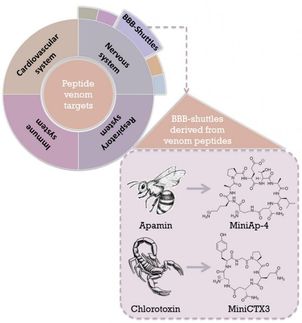New study discovers biological basis for magic mushroom 'mind expansion'
Advertisement
New research shows that our brain displays a similar pattern of activity during dreams as it does during a mind-expanding drug trip. Psychedelic drugs such as LSD and magic mushrooms can profoundly alter the way we experience the world but little is known about what physically happens in the brain. New research, published in Human Brain Mapping, has examined the brain effects of the psychedelic chemical in magic mushrooms, called 'psilocybin,' using data from brain scans of volunteers who had been injected with the drug.
The study found that under psilocybin, activity in the more primitive brain network linked to emotional thinking became more pronounced, with several different areas in this network - such as the hippocampus and anterior cingulate cortex - active at the same time. This pattern of activity is similar to the pattern observed in people who are dreaming. Conversely, volunteers who had taken psilocybin had more disjointed and uncoordinated activity in the brain network that is linked to high-level thinking, including self-consciousness.
Psychedelic drugs are unique among other psychoactive chemicals in that users often describe 'expanded consciousness,' including enhanced associations, vivid imagination and dream-like states. To explore the biological basis for this experience, researchers analysed brain imaging data from 15 volunteers who were given psilocybin intravenously while they lay in a functional magnetic resonance imaging (fMRI) scanner. Volunteers were scanned under the influence of psilocybin and when they had been injected with a placebo
"What we have done in this research is begin to identify the biological basis of the reported mind expansion associated with psychedelic drugs," said Dr. Robin Carhart-Harris from the Department of Medicine, Imperial College London. "I was fascinated to see similarities between the pattern of brain activity in a psychedelic state and the pattern of brain activity during dream sleep, especially as both involve the primitive areas of the brain linked to emotions and memory. People often describe taking psilocybin as producing a dreamlike state and our findings have, for the first time, provided a physical representation for the experience in the brain."
The new study examined variation in the amplitude of fluctuations in what is called the blood-oxygen level dependent (BOLD) signal, which tracks activity levels in the brain. This revealed that activity in important brain networks linked to high-level thinking in humans becomes unsynchronised and disorganised under psilocybin. One particular network that was especially affected plays a central role in the brain, essentially 'holding it all together', and is linked to our sense of self.
In comparison, activity in the different areas of a more primitive brain network became more synchronised under the drug, indicating they were working in a more co-ordinated, 'louder' fashion. The network involves areas of the hippocampus, associated with memory and emotion, and the anterior cingulate cortex which is related to states of arousal.
Original publication
Tagliazucchi, E. et al.; 'Enhanced repertoire of brain dynamical states during the psychedelic experience"; Human Brain Mapping, 2014.




















































